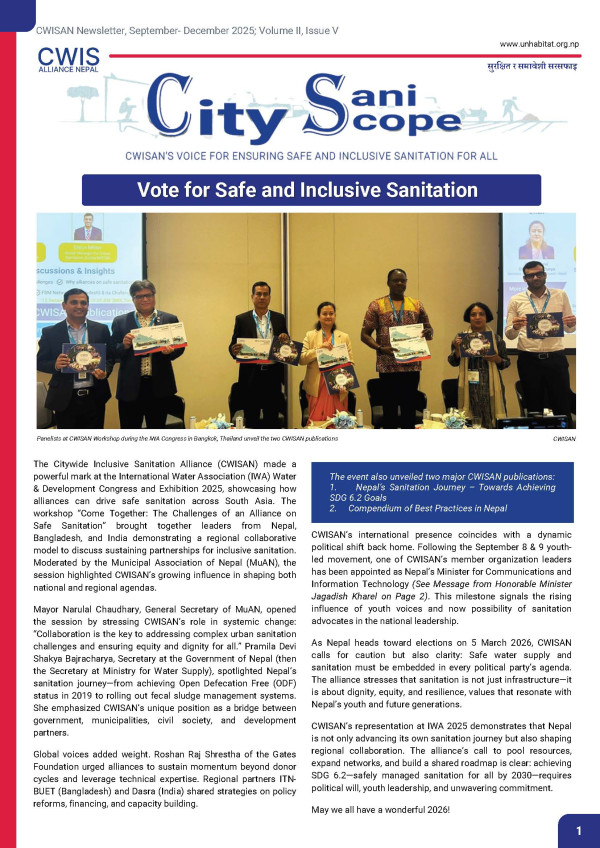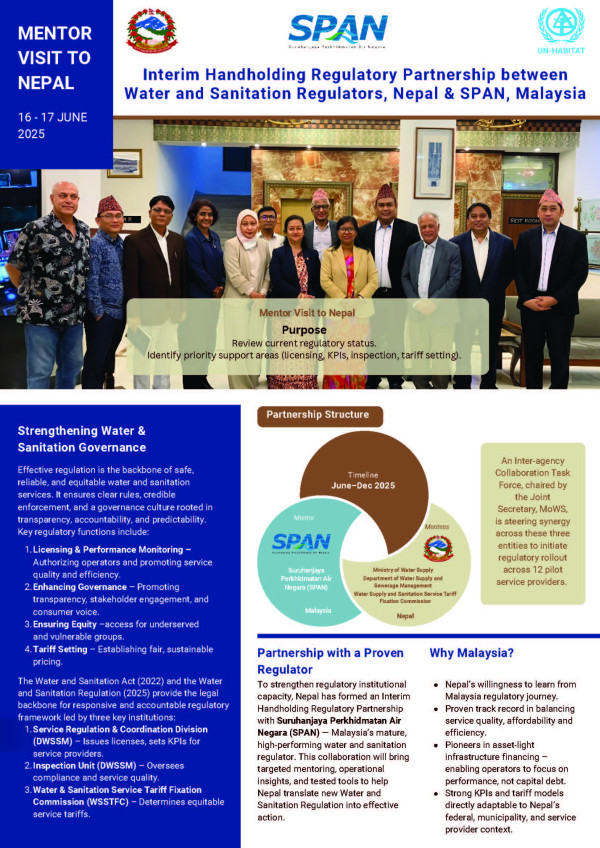Financing Climate Actions through SDG Localization: Technical Session with Municipalities
UN-Habitat Nepal successfully hosted a Technical Session on Financing Climate Actions through the Localization of Sustainable Development Goals (SDGs) on 22 August 2025 at Hotel Square, Pulchowk. The session was organized under the project “Accelerating Localization of Integrated Climate Action in Nepal” with support from the United Nations Joint SDG Fund and implemented jointly by the World Food Programme (WFP), UNDP Nepal, and UN-Habitat Nepal.
The event brought together 55 participants representing national and local governments, development partners, academia, and civil society. Attendees included representatives from the Ministry of Urban Development, Ministry of Forest and Environment, National Planning Commission, Municipal Association of Nepal, National Association of Rural Municipalities in Nepal, Regional and Urban Planners’ Association of Nepal, 10 municipalities from Kathmandu Valley and 2 municipalities outside the Valley, as well as the Institute of Engineering and Kathmandu University. Development partners including WFP, UNDP, UNCDF, ICIMOD, FCDO, and UNV Nepal, along with national NGOs such as CIUD, Story Cycle, and Lumanti, also joined the event.
The session opened with an overview by Ms. Pragya Pradhan, Habitat Programme Manager at UN-Habitat, who explained the importance of SDG localization and the Voluntary Local Review (VLR) process. She emphasized how municipal actions can be aligned with national and global SDG commitments, while acknowledging challenges around data availability, validation, and the need for stronger youth engagement in the process.
Municipal representatives from Chandragiri, Lamahi, and Suryodaya then presented their experiences in integrating climate action and SDG localization. Chandragiri shared its work on climate budgeting, disaster preparedness, and urban greening, while Lamahi highlighted climate-smart agriculture, forestry initiatives, and environmental conservation efforts. Suryodaya showcased its digital innovations, including an SDG tracking dashboard and budget tagging systems, alongside cross-sectoral initiatives covering health, education, agriculture, and governance. These case studies not only demonstrated practical solutions but also stimulated dialogue among participants on how municipalities can adapt such practices to their own contexts.
The discussion then shifted to financing, with Dr. Gopi Krishna Khanal, Municipal Finance Expert and former Secretary of the Government of Nepal, presenting on mechanisms for financing SDG implementation. He stressed that effective local governments must be inclusive, resilient, and accountable, and underscored the importance of strengthening intergovernmental fiscal transfers, generating local revenue, mobilizing public-private partnerships, and ensuring transparent financial governance. His presentation prompted reflections on balancing ambition with financial capacity and reinforced the idea that sustainable climate action financing requires contributions from communities, private actors, and development partners alongside government institutions.
Closing reflections were delivered by Dr. Chandra Lal Pandey, Associate Professor at Kathmandu University, who emphasized the importance of turning strategies into practical local actions. The event underlined that municipalities are already taking meaningful steps such as preparing disaster risk reduction plans, promoting greenery, establishing dedicated funds, and introducing climate-smart agriculture. At the same time, participants acknowledged the urgent need to address shifting rainfall patterns, biodiversity loss, and increasing disasters, all of which are impacting local livelihoods.
The technical session reaffirmed that the first and most
effective response to the climate crisis begins at the municipal level. By
strengthening financing mechanisms, sharing experiences, and linking SDG
localization with climate action planning, Nepal’s municipalities are laying
the foundation for resilient, inclusive, and sustainable communities that
contribute to national and global climate goals.





.jpg)